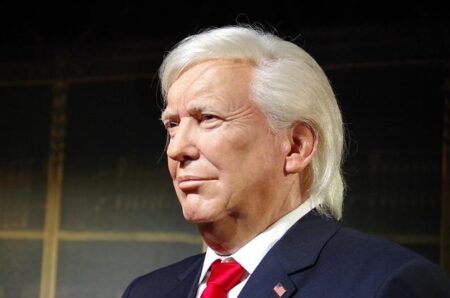The University of Maryland’s Turning Point USA chapter has challenged the institution’s decision to impose a security fee on their upcoming event, arguing that the charge is unconstitutional. The student organization claims the fee infringes on their First Amendment rights by creating an undue financial barrier to free speech. This dispute highlights ongoing tensions between campus groups and university administrations over event policies and the costs associated with ensuring safety on college campuses.
UMD Turning Point USA Chapter Challenges Event Security Fee as Violation of Constitutional Rights
The Turning Point USA chapter at the University of Maryland has formally contested the university’s imposition of a security fee for hosting events on campus, arguing that the charge infringes upon their First Amendment rights. According to chapter representatives, the fee creates a financial barrier that disproportionately affects student organizations, particularly those with limited budgets, effectively censoring their ability to organize and express political viewpoints. They contend that public universities, as government entities, cannot condition the exercise of free speech on mandatory payments for security without violating constitutional protections.
University officials maintain that the fee covers necessary costs to ensure safety during large gatherings and applies equally to all student groups regardless of ideology. However, critics argue this policy lacks transparency and disproportionately burdens smaller or less mainstream organizations. Below is a summary of key arguments presented by both parties:
- Turning Point USA: Security fees represent a content-based restriction on speech and assembly.
- University of Maryland: Fees are neutral, administrative measures to maintain campus safety.
- Constitutional Concern: Whether charging fees infringes on free speech rights in a public forum.
- Financial Impact: Smaller groups face greater challenges in funding essential events.
| Aspect | Turning Point USA | University of Maryland |
|---|---|---|
| Security Fee | Unconstitutional obstacle | Necessary administrative cost |
| Impact on Free Speech | Restricts political expression | Neutral and non-discriminatory |
| Applicability | Targets student groups unfairly | Uniformly applied to all events |
Legal Experts Weigh In on the Implications of Charging Security Fees for Campus Events
Legal authorities have expressed concern over the practice of imposing security fees on campus events, warning that such charges could infringe upon constitutional rights, particularly the First Amendment. Experts argue that requiring student groups or external organizations to pay for security at public universities may act as a de facto barrier to free expression, especially when fees are levied selectively based on event content or political viewpoints. “Charging for security disproportionately burdens certain speech, creating a chilling effect,” noted one constitutional attorney specializing in educational law.
Furthermore, legal analysts emphasize that public institutions must tread carefully to avoid any appearance of viewpoint discrimination. The fees might be justified under neutral policies if applied uniformly, but ambiguity often leads to inconsistent enforcement. Key legal considerations include:
- Due Process: Clear criteria and advance notice about fees are essential to prevent arbitrary imposition.
- Equal Protection: Security costs should not single out groups based on ideology.
- Public Forum Doctrine: University grounds typically function as traditional or designated public forums, thus heightening scrutiny of speech restrictions.
| Legal Principle | Implication for Security Fee |
|---|---|
| First Amendment | Protects free speech; fees must avoid suppressing expression |
| Equal Protection Clause | Prevents discriminatory fee application based on viewpoint |
| Due Process | Requires transparency and fair procedures |
Recommendations for Universities to Balance Campus Safety and Free Speech Rights
Universities must carefully navigate the fine line between maintaining campus security and upholding the fundamental right to free speech. One effective approach is to adopt transparent policies that clearly delineate when and why security fees are applied to student organizations. Providing detailed justifications for such fees, accompanied by standardized cost assessments, can prevent perceptions of arbitrary or discriminatory practices. Additionally, campuses should prioritize collaborative planning with event organizers during the early stages to identify security risks and explore cost-effective solutions that do not unduly burden speakers or participants.
To ensure fairness and promote an open exchange of ideas, institutions might consider implementing:
- Fee waivers or subsidies for groups hosting events on contentious or high-profile topics
- Clear appeal processes allowing organizations to challenge excessive charges
- Ongoing training for campus security personnel emphasizing the importance of nonpartisan enforcement of safety protocols
| University Strategy | Benefit |
|---|---|
| Transparent Security Fee Guidelines | Reduces ambiguity, builds trust |
| Early Organizer-Security Collaboration | Optimizes safety and costs |
| Fee Waivers for Sensitive Events | Protects free speech rights |
| Appeal Mechanism | Ensures accountability |
Wrapping Up
As the debate over the security fee at the University of Maryland continues, Turning Point USA’s challenge raises important questions about the balance between campus safety measures and free speech rights. With the issue now drawing attention beyond campus, stakeholders await further developments that could have broader implications for event policies at public universities nationwide. The Diamondback will continue to monitor the situation and provide updates as the story unfolds.




